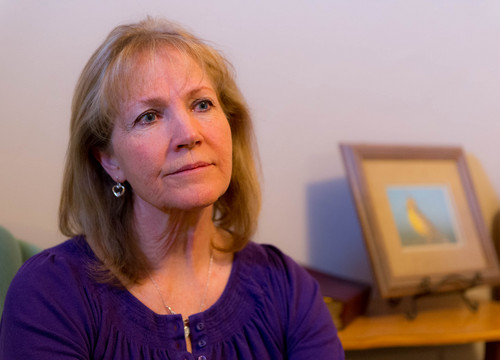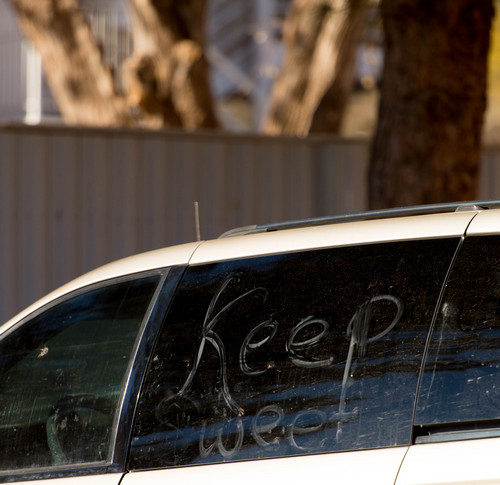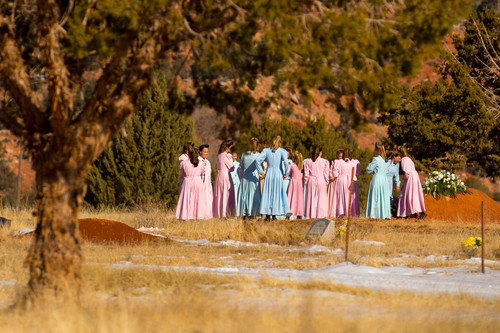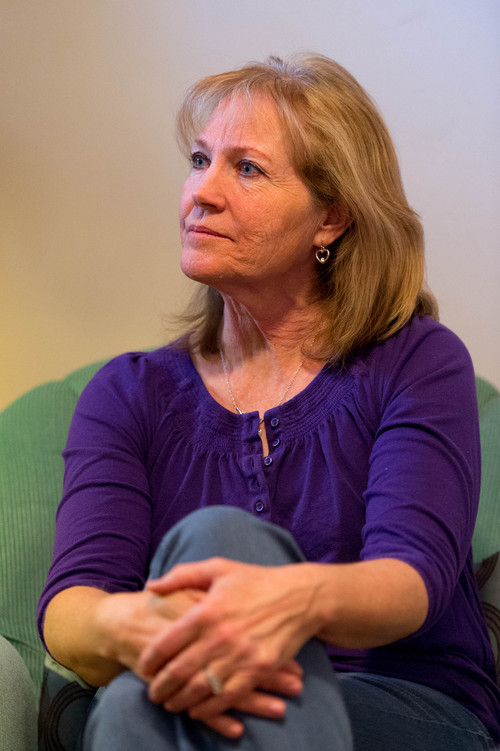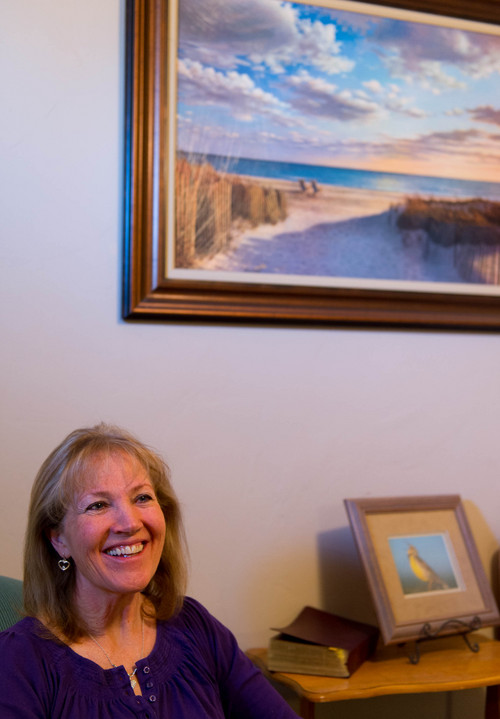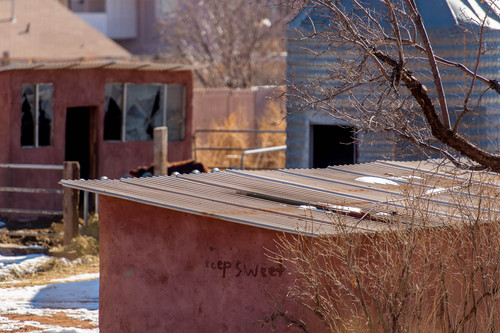This is an archived article that was published on sltrib.com in 2013, and information in the article may be outdated. It is provided only for personal research purposes and may not be reprinted.
Colorado City, Ariz. • As Kristyn Decker woke up early Saturday morning, she thought she was going to have a good day. Then her phone beeped.
Decker said the message she received alerted her to Friday's landmark ruling in which U.S. District Judge Clark Waddoups struck down parts of Utah's law against cohabitation. The decision effectively decriminalized polygamy, and while it didn't particularly surprise Decker, it did disappoint her.
"I think it's going to open the door for more polygamy, more welfare," Decker said of Waddoups' ruling.
And that's exactly the opposite thing Decker wants to see happen.
Decker spent five decades as a member of the polygamous Apostolic United Brethren, which was linked to the Kody Brown family, who filed the lawsuit leading to Waddoups' ruling and star in TV's "Sister Wives."
The daughter of a past leader of the group, Decker married and had children, but by 2001 became disillusioned and walked away. Her forthcoming book, "Fifty Years in Polygamy," tells the story.
Today, Decker is soft spoken and usually smiling. During a conversation in Colorado City on Sunday morning, she said several times she wanted to look for possible positive results of Waddoups' ruling — maybe it would bring polygamists into greater contact with the outside world, she speculated — but also said unequivocally that decriminalizing polygamy is a mistake.
The problem, Decker said, is that polygamy fosters abuse, particularly against women and children. Decker said she saw the abuse first-hand during her years in the AUB and now continues to talk to scores of women who are too afraid to go public with their experiences. People who see polygamy as a matter of choice between consenting adults — and who equate the issue with gay marriage — miss that point.
"It's not about choice," she argued. "It's about coercion."
Decker said women in polygamous communities are coerced by being told that their salvation depends on defending "the principle," a fundamentalist term for plural marriage. Dissenters face retaliation, as well as expulsion from their families and social circles, Decker said.
Polygamy also strains children, who are forced to assume significant responsibility.
"Families are so large they're not getting the things they need," she said. "You've got children raising children."
And despite a willingness to look on the bright side, Decker was skeptical that Waddoups' ruling would do much to curb those problems. She said most polygamists have not feared arrest or prosecution in recent years and decriminalizing the practice edges closer to condoning abuse.
"I don't think there's any good polygamy," she added.
Decker's response to Waddoups' ruling stands in contrast to that of others following the issue — particularly practicing polygamists — several of whom told the Tribune over the weekend that they were pleased by the ruling.
Others, such as the prominent Darger family, as well as the Browns, hailed the ruling as a step away from bigotry and toward bringing the polygamous lifestyle out of the shadows.
Various polygamous groups have also argued over the years that abuses are perpetrated by bad apples and are not characteristic of all polygamists.
The Brown family's publicist said Sunday they were not doing interviews.
But Marion Munn sided with Decker. Munn also spent years in the AUB and mentioned that the Browns in particular are not bad people. Munn is now a graduate student at the University of Utah studying rhetoric and writing.
Her master's thesis explores the media treatment of polygamy and a 1953 government raid against the polygamist Short Creek community in Arizona, among other things.
Munn said Sunday that decriminalizing polygamy will help perpetuate the kinds of abuses mentioned by Decker because it offers polygamy protected religious status.
"The Constitution protects religious belief but not religious practices," she said.
Both Decker and Munn also singled out for criticism, the attorney general's handling of the case. Decker attended a hearing earlier this year and said she remembers desperately wanting to jump up and tell the judge what Assistant Attorney General Jerrold Jensen was leaving out. Munn, who did not attend the hearing, added that from what she read the state's case seemed "quite ill-prepared and inept."
Jensen did not return a call Friday evening shortly after the ruling was handed down. However, Gov. Gary Herbert has vowed to review the case, saying he is concerned when courts try to change public policy.
Author Ed Kociela, who lives in southern Utah and has written about polygamy, agreed with Decker's and Munn's characterization of the A.G.'s work, saying Waddoups himself chastised the office for not putting on a better case.
In an op-ed written for the St. George News, Kociela called Waddoups' decision "myopic" and said it overlooked the abuses and coercion that go on in polygamous communities.
Kociela added in a conversation Sunday afternoon in St. George that he could see the nearby Short Creek area experiencing growth as a result of the ruling, as polygamists who fled the area over the years realize they face less of a threat from the government and return.





